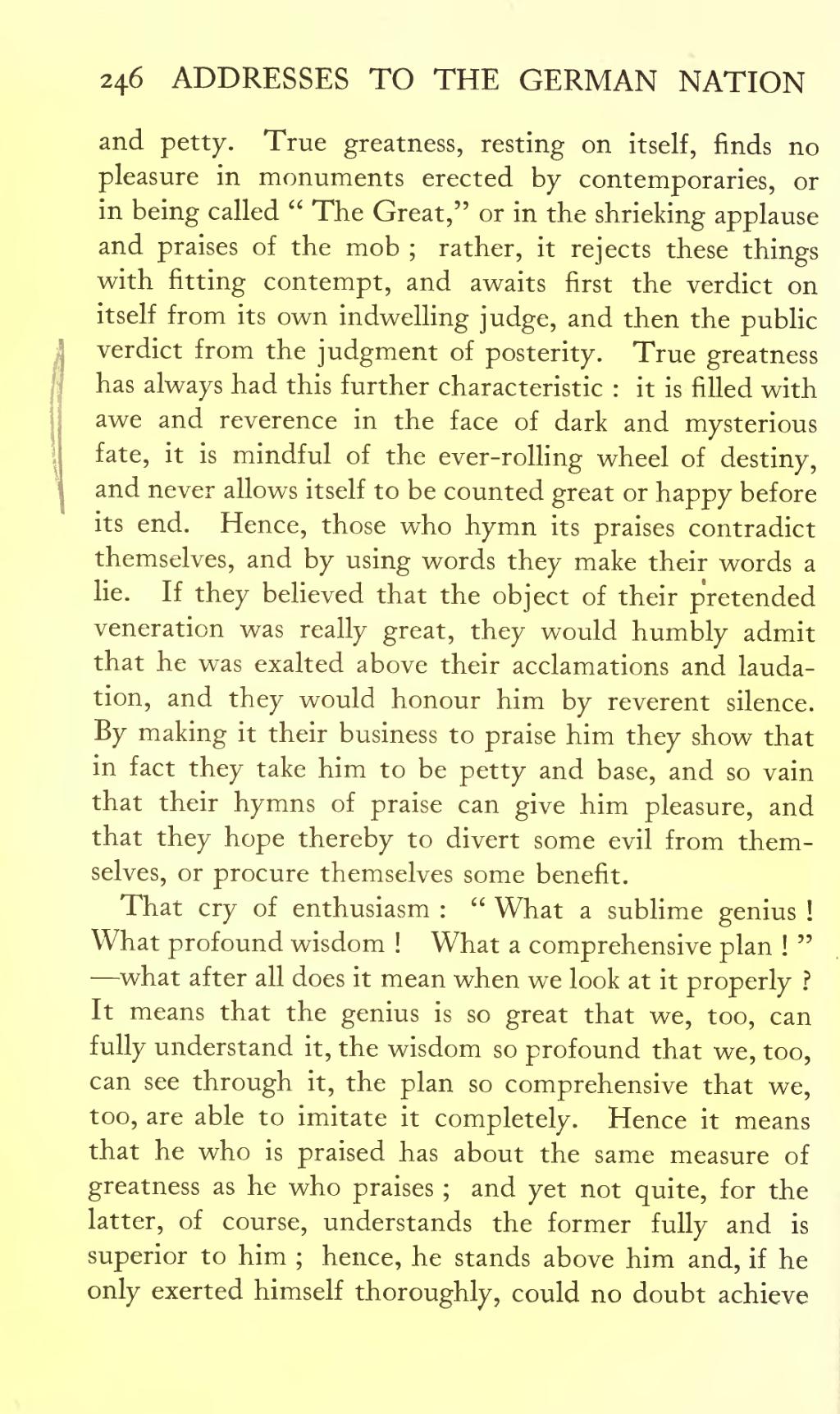and petty. True greatness, resting on itself, finds no pleasure in monuments erected by contemporaries, or in being called “The Great,” or in the shrieking applause and praises of the mob; rather, it rejects these things with fitting contempt, and awaits first the verdict on itself from its own indwelling judge, and then the public verdict from the judgment of posterity. True greatness has always had this further characteristic: it is filled with awe and reverence in the face of dark and mysterious fate, it is mindful of the ever-rolling wheel of destiny, and never allows itself to be counted great or happy before its end. Hence, those who hymn its praises contradict themselves, and by using words they make their words a lie. If they believed that the object of their pretended veneration was really great, they would humbly admit that he was exalted above their acclamations and laudation, and they would honour him by reverent silence. By making it their business to praise him they show that in fact they take him to be petty and base, and so vain that their hymns of praise can give him pleasure, and that they hope thereby to divert some evil from themselves, or procure themselves some benefit.
That cry of enthusiasm: “What a sublime genius! What profound wisdom! What a comprehensive plan!”—what after all does it mean when we look at it properly? It means that the genius is so great that we, too, can fully understand it, the wisdom so profound that we, too, can see through it, the plan so comprehensive that we, too, are able to imitate it completely. Hence it means that he who is praised has about the same measure of greatness as he who praises; and yet not quite, for the latter, of course, understands the former fully and is superior to him; hence, he stands above him and, if he only exerted himself thoroughly, could no doubt achieve

